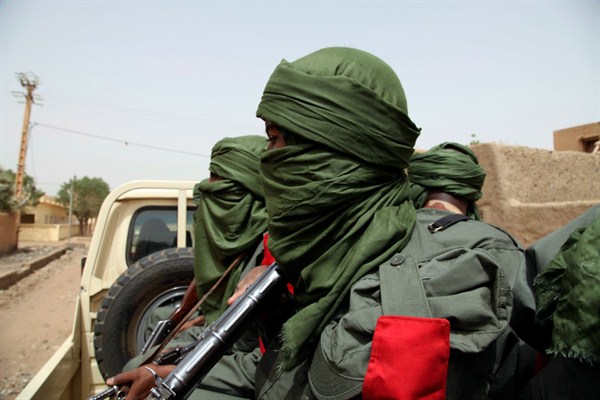The arrival of interim authorities in northern Mali combined with the launch of joint security patrols involving soldiers and former rebels underline the government’s determination to make significant headway this year toward implementing a stagnating 2015 peace accord with separatist insurgents in the region. But both efforts have run into trouble, and the recently announced alliance of three jihadi groups is a reminder that the threat of disruptive extremist violence isn’t going away.
Beginning in late February, interim authorities have been sent to the northern cities of Gao, Kidal and Menaka. Their arrival marks an attempt by the government, based in the capital of Bamako in southern Mali, to re-establish a presence in the north. The region fell to Tuareg separatist rebels and jihadis in 2012, prompting a French-led military intervention and the creation of a U.N. peacekeeping mission that now boasts more than 13,000 troops. The officials are supposed to start restoring public services such as schools and health facilities, while preparing the region for the return of refugees as the government works to organize regional elections.
Armed groups have made their opposition to the interim authorities clear. In Gao, dozens of potential spoilers demanding a greater role in the process occupied the regional assembly. And Monday, armed men from groups that have also complained of a lack of consultation took over checkpoints surrounding the storied city of Timbuktu. Businesses were forced to close, and residents reported hearing gunfire throughout much of the morning. As of midweek, the process of setting up an interim administration had been halted in both Timbuktu and Taoudeni, and protests were expected in Timbuktu on Friday.

